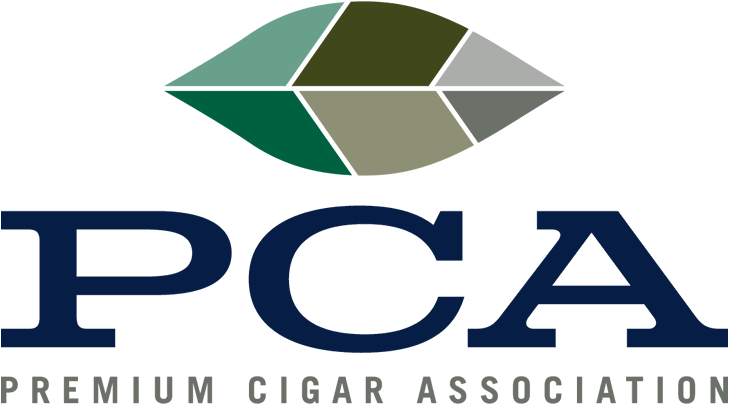Nicholas Melillo loves Connecticut. Love may not even be a strong enough word to describe the affection and passion he has for his home state. Connecticut, to Melillo, is not just home, it’s the center of his company, Foundation Cigar Company, and the focus of his current work.
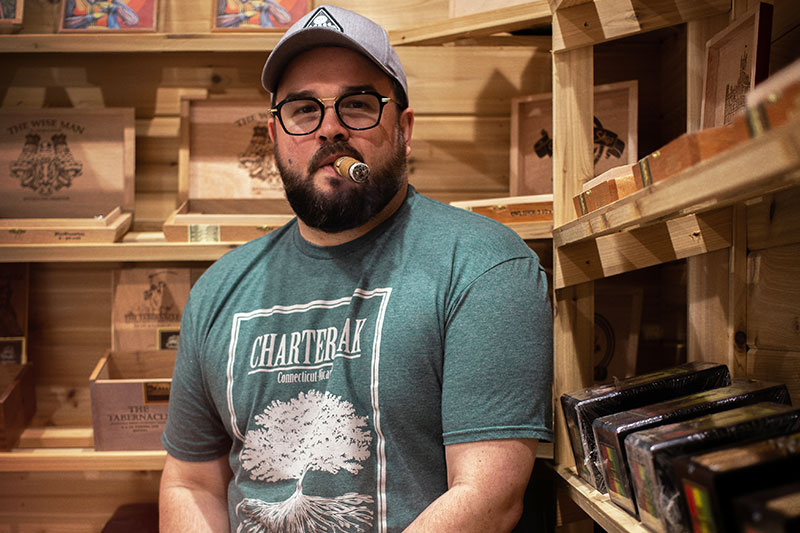
Since the launch of Foundation Cigar Company in 2015, Melillo knew he wanted his premium tobacco company to have a heavy presence in Connecticut. In June of this year, Melillo finally fulfilled part of the original vision he had set for his company when he announced the opening of Foundation’s new office located on the 300-acre farm owned by Dunn & Foster in Ellington, Connecticut. Before moving into this office space, Foundation Cigar Company had temporary offices on another farm. When the pandemic occurred in 2020, his original plans were delayed because of challenges in building his new office. Still, he didn’t let that stop him. He knew that this would be more than just a place where he got work done and would answer calls and emails. This new base of operations would be the launchpad into a new chapter for his company and himself.
“A lot of people are like, Connecticut? As I grew up and was learning about cigars, the fact that we grew cigar tobacco here was always really amazing in my mind. With this [Connecticut] being one of the premier tobacco growing regions in the world, it just made sense to have my team based here,” Melillo explains.
He continues, “I work a lot in the Valley during the growing season with many farms, reviewing crops. Then we ship the crops down to Nicaragua, usually at the end of the year in December or at the very start in January. I don’t think any other American company has its offices right on a 300-acre farm. It really changes the perspective of my team to be connected to the source of where some of our tobacco for our blends comes from.”
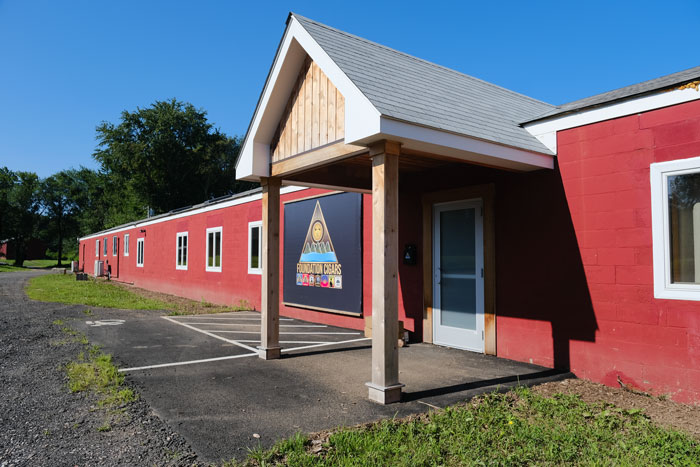
Though many of his peers in the cigar industry have established offices in Florida, Melillo didn’t feel compelled to follow the crowd. Establishing a home base in Connecticut felt natural, if not necessary. “Connecticut is just so important to me personally and to the handmade cigar industry,” Melillo shares. “From a tax perspective, it would have been much easier from a financial standpoint to be in Florida. I thought it was crucial to have Foundation right in the mix.”
Melillo has more reasons for setting up base in Connecticut than wanting to be closer to home. Nicaragua has played a significant role in his career, and the cigars Foundation has released. But Connecticut and its tobacco have remained a constant throughout Foundation Cigar Company’s story. Tobacco grown and harvested in Connecticut is in the blends for several of Foundation’s cigar lines, including Charter Oak and the Tabernacle. Even with these cigar lines growing in popularity, Melillo has noticed that Connecticut gets a different kind of attention and fanfare than some of the other cigar-growing countries, despite their popularity in blends. This realization is part of the reason Melillo moved back to Connecticut. He’s on a mission to put the Connecticut River Valley and its tobacco on the map.
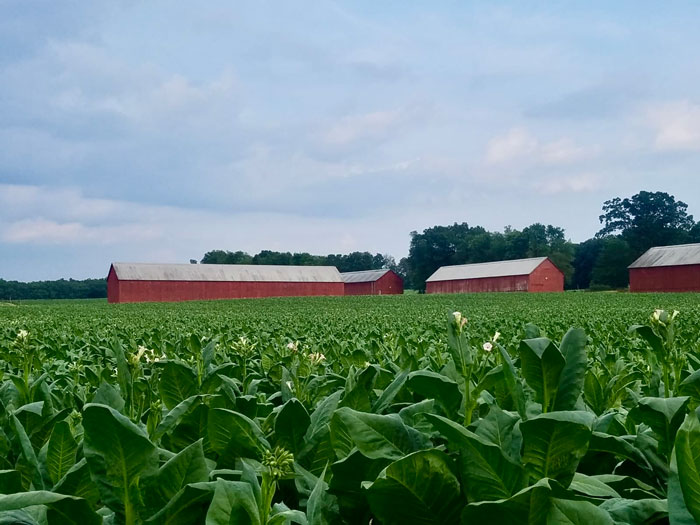
Connecticut’s Tobacco Roots
Connecticut Broadleaf tobacco grew in popularity in the early 1800s but faced challenges when the Dutch began to trade Sumatra leaf that was used for wrapper. As Sumatra became the leaf of choice for many, Connecticut’s Department of Agriculture responded by working with local farmers to develop tobacco seeds resistant to insects and sickness. It was through this hybridizing process that Connecticut Shade was born. With sunlight playing an essential role in this new seed, a grower had the idea to grow tobacco under cheesecloth tents. It wasn’t until around 1910 that this began to take off, and Connecticut Shade tobacco started to dominate the market.
Melillo describes this tobacco as “golden; it’s beautiful, high-yielding, smooth wrapper.”
Not wanting to be bested, the Dutch took Connecticut Shade seed to Ecuador, which was mostly cloudy during the growing season. This natural shade made Ecuador a famous region for Connecticut Shade tobacco. However, this tobacco was different from that grown in the Connecticut River Valley. “It’s much thinner in vein structure, and the leaf is very thin. It’s more of a neutral style of tobacco, whereas broadleaf can’t be replicated because it’s thicker and heavier,” Melillo explains.
As Connecticut Seed tobacco grown in Ecuador continued to grow in popularity, Connecticut made efforts to return to the original seed experimentation and development methods that had made Connecticut Shade so popular in the past. These efforts, however, never panned out. One of the reasons Melillo wanted to establish an office in Connecticut was to reignite these efforts. Working alongside other farmers in the Valley, Melillo intends to use some of his time experimenting with new seed varieties to see what can be created.
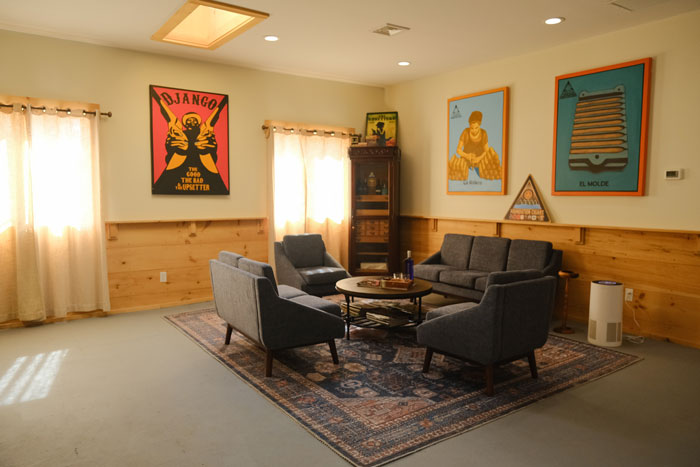
“We’re trying to get more involvement from Connecticut’s experimentation station. They’ve always worked with farmers to help with resistance against diseases, insects, and whatnot, but there hasn’t been a lot of development of new styles. We really need something else that can replace Connecticut Shade because the shade was the crux of the volume that was coming out of the Valley in the ’50s, ’60s and ’70s,” he says.
Melillo wants everyone to know how important the Connecticut River Valley and its tobacco culture are to today’s premium cigar industry. Melillo and Foundation Cigar Company’s mission going forward is educating others in the state and the cigar industry on the importance of Connecticut to the world of tobacco.
“You’re going to see a lot more marketing and educating with Foundation and within its brands,” he revealed. “Eventually, we’re going to start having retailers come and visit, probably starting next season. Retailers will learn more about tobacco and its history here.”
Melillo sees Connecticut becoming more of the image of Foundation Cigar Company while maintaining its connection to Nicaragua, where he’ll continue to visit often as the seasons and production process require. Those unable to travel to Foundation’s new office can experience the worlds of Nicaragua and Connecticut through the company’s premium cigar portfolio.
Tabernacle is what Foundation Cigar Company is most known for, according to Melillo. This cigar is full-bodied and full-flavored with a good amount of strength. Tabernacle allows cigar smokers to experience Cuban seed and broadleaf tobacco. Charter Oak is an entirely different blend from the Tabernacle line. The Charter Oak Maduro uses a broadleaf in its blend. At the same time, Charter Oak Shade’s Connecticut seed wrapper is grown in Ecaudor. Charter Oak is much milder and more straightforward in flavor than Tabernacle, which Melillo describes as having a symphony of flavors. There are also new releases that build on the Connecticut focus. At PCA23, Foundation Cigar Company introduced a new cigar line called Metapa. This cigar will feature a Connecticut Broadleaf binder, which Melillo says is crucial to the blend. Melillo also announced a new limited-edition cigar, the Tabernacle Knight Commander, which uses Connecticut Broadleaf in its blend.
The Next Chapter
As Melillo continues to lead Foundation Cigar Company into its next chapter, he’s also settling comfortably into his role as an advocate for the tobacco and cigar industries. He’s meeting with politicians and other local representatives within Connecticut about their state’s rich history in tobacco.
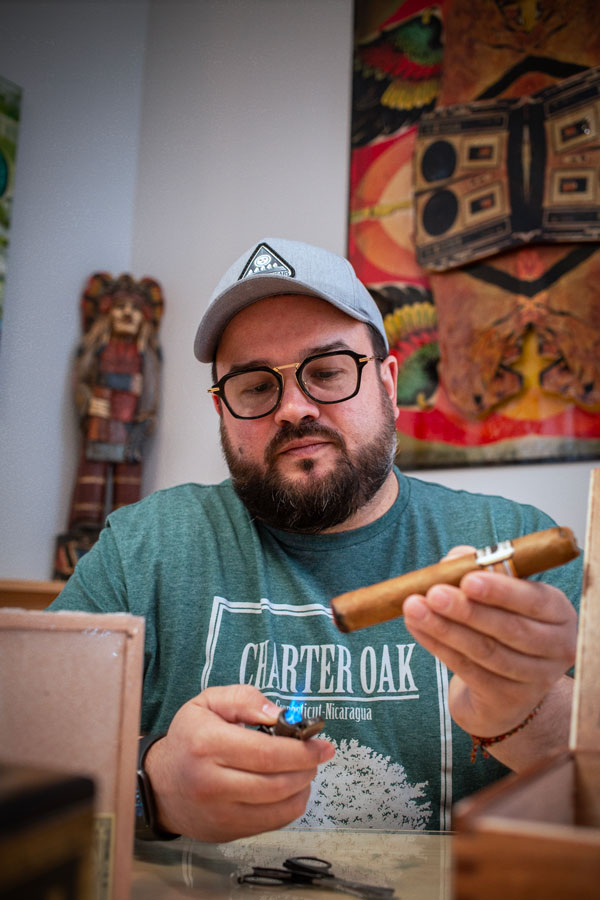
“Fortunately, we’ve had a lot of great meetings with both sides of the aisle that understand the historical importance of Connecticut’s tobacco industry and the jobs that are being provided by it,” Melillo explains. “Many people who live here don’t even know about the industry because it hasn’t really been talked about, so it’s kind of this hidden gem.”
Melillo will work with local media to help tell the story of the Connecticut River Valley and its flourishing tobacco industry. He also plans to put together the history of tobacco in Connecticut in hopes of communicating the importance of the tobacco industry and why others should join in the efforts to preserve it.
“It’s a new chapter for us in so many ways. I started with one brand—El Güegüense. I had one other person working with me. We shared a quarter of a booth at the trade show with a good friend of mine, Dion from Illusione. At one point this year, I stood on the floor and saw the booth, the traffic and the team, and it was amazing to see how far we’ve come in the past seven years,” says Melillo.
Melillo is invigorated with Foundation’s new office in the Connecticut River Valley, which he affectionately calls the Napa Valley of cigar tobaccos. Several new releases will highlight Connecticut tobacco, such as the Charter Oak Pegnataro, which features a Connecticut Shade wrapper, and the Charter Oak Pasquale, which has a broadleaf wrapper. Through future releases, events, and the work ahead, he hopes others will appreciate and love Connecticut’s contributions to the tobacco industry just as much as he does.
– Photography by David Roberts. Other photos courtesy of Foundation Cigar Company. Story by Antoine Reid, content director at Premium Cigar Association (PCA). You can reach him at [email protected].
This story first appeared in PCA The Magazine, Volume 3, 2023. To receive a copy of this magazine you must be a current member of PCA. Join or renew today at premiumcigars.org/membership.
